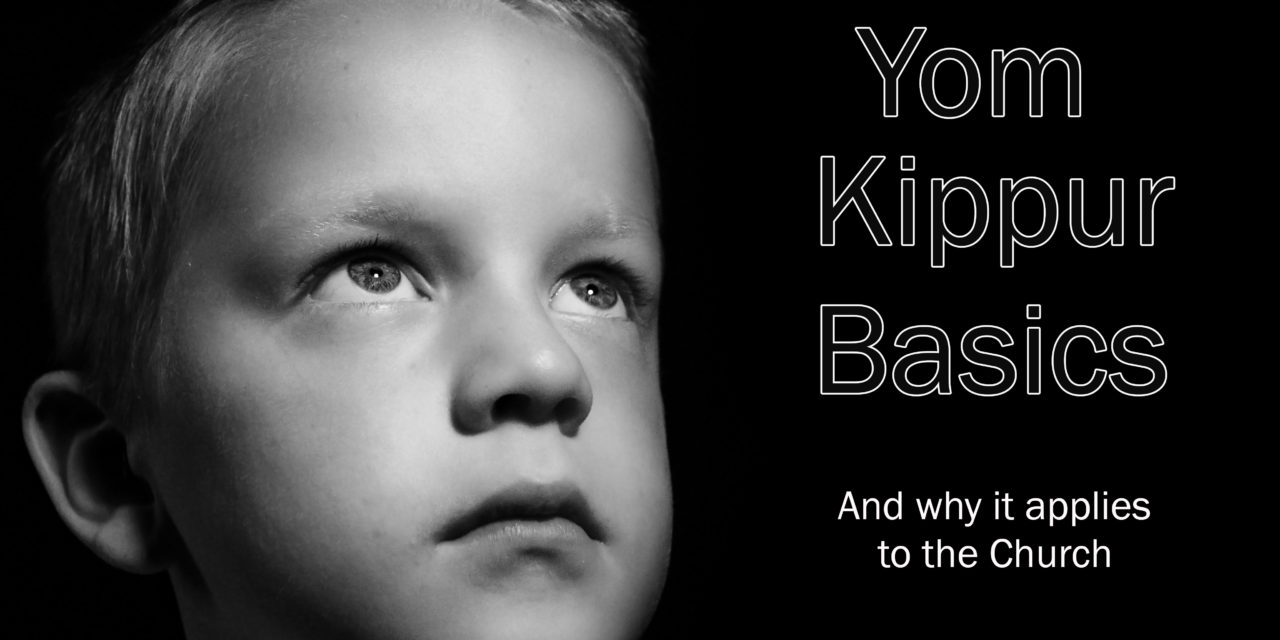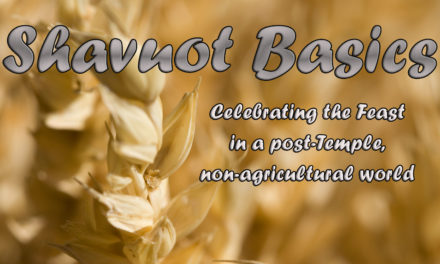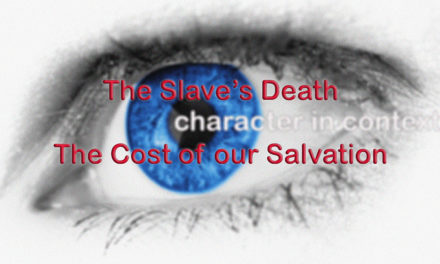We are now heading into the last of the official Feasts for which I have not yet written a “basics” blog–Yom Kippur, the holiest day of the year and since it is coming up next week (2020–September 27th at sundown through the 28th at sundown on the Rabbinic calendar this year–not on my husband’s birthday, like last year) it is high time to tackle it. As far as Yom Kippur goes, there are pretty much three main questions I get:
(1) Why do we need a day of atonement when Messiah already atoned for us?
(2) What does it mean to afflict ourselves, we can do it without fasting, right? What if I just promise to just sit around and feel really guilty about my sins?
(3) What if I can’t fast for medical reasons?
Before I answer those three questions I am going to post the “Yom Kippur” verses from the Torah.
29 “And it shall be a statute to you forever that in the seventh month, on the tenth day of the month, you shall afflict yourselves and shall do no work, either the native or the stranger who sojourns among you. 30 For on this day shall atonement be made for you to cleanse you. You shall be clean before the Lord from all your sins. 31 It is a Sabbath of solemn rest to you, and you shall afflict yourselves; it is a statute forever. (Lev 16 ESV)
26 And the Lord spoke to Moses, saying, 27 “Now on the tenth day of this seventh month is the Day of Atonement. It shall be for you a time of holy convocation, and you shall afflict yourselves and present a food offering to the Lord. 28 And you shall not do any work on that very day, for it is a Day of Atonement, to make atonement for you before the Lord your God. 29 For whoever is not afflicted on that very day shall be cut off from his people. 30 And whoever does any work on that very day, that person I will destroy from among his people. 31 You shall not do any work. It is a statute forever throughout your generations in all your dwelling places. 32 It shall be to you a Sabbath of solemn rest, and you shall afflict yourselves. On the ninth day of the month beginning at evening, from evening to evening shall you keep your Sabbath.” (Lev 23, ESV)
I obviously left out the verses pertaining to the Yom Kippur sacrifices/offerings because, well–no Temple. This is a basics blog–it deals with our responsibilities to God and one another and not the intricacies of the Yom Kippur sacrifices and their spiritual significance and all that. So, no scapegoats here.
Now that the preliminaries are over with, let’s get to the basics from the verses listed:
Statute forever. Tenth day of the seventh month. No work. A solemn rest. Afflict yourselves.
This day is spent in total fasting–no food, no water, no comforts, no entertainment. It is spent in prayer and petition and in recognition that we are only forgiven by the grace of God. This isn’t an earning of forgiveness, but an acknowledgment of God’s authority and goodness–it is true repentance as symbolized throughout the ages in the Biblical text. Even the Ninevites knew how to please God through fasting-centered repentance. We humble ourselves because He deserves for us to acknowledge how inadequate our witness is in the world–and by refusing to partake in the very blessings that are a gift we do not deserve. After two thousand years, there shouldn’t be any tribe or tongue that has not heard of the Savior, but there are so many unreached peoples that we ought to be ashamed of our lack of passion (and compassion) in this area. People are dying without Him while we argue about stupid stuff and eat three square meals a day and gorge ourselves on entertainment and comforts of all sorts. Folks have money for superfluous essential oils and Netflix but seemingly none for the needy. We have plenty of reason to repent and be humbled.
Of course, this commandment was written to people who were living under a constitutional theocracy–which means that they had God as their King, and He ruled according to the commandments given in the Torah (the five books of Moses: Genesis through Deuteronomy). This means they had no excuse whatsoever not to stop working, absolutely nothing barring them. They answered only to God and to the judges set up by Moses. By the first century, things were more complicated. So many Jews spread throughout the Roman Empire were slaves and their masters had absolute power over their life and death. They had not lived under a system that fully supported the celebration (yes, celebration) of Yom Kippur for many hundreds of years–except within the Holy Land. Likely those slaves kept neither Sabbath nor Yom Kippur nor the Feasts as they were commanded in Scripture. This was and is the consequence of living in Exile–which Moses warned the Israelites about during his own life–that they would be forced to live under the laws of other nations as part of their punishment. That they would be forced to serve masters other than God. Nehemiah 9 includes a prayer where this fact is lamented–that even living in the Land, they were not free.
And today we are in exile as well. We have restrictions on our lives because Messiah is not yet ruling and reigning here on earth. If He was then we could celebrate God’s festivals without restriction. That we have restrictions now is one of the reasons we mourn on Yom Kippur, and repent, and long for His return to us so that we can be fully commandment-keeping people in the world He created. So, just let me say that I know people sometimes have severe work restrictions and especially young people just starting out with no vacation (or not enough vacation) and no sick days (or maybe they just aren’t willing to lie and call in sick on a day of repentance). And if you absolutely cannot get out of working that day then please do what you can do. Don’t just give it up and live it up that day. There is something you can do–there is always something. We can always honor God, even if our methods are curtailed by circumstances.
Now, to the questions:
(1) Why do we need a day of atonement when Messiah already atoned for us?
This is a common question and it is very simple to answer. Yeshua/Jesus bought our salvation and atonement as individuals on the Passover when He was crucified. That part is done. Now, we are obligated to live with Him as our Master, obeying Him and walking as He walked–which, of course, is obeying the Torah at such a deep, self-sacrificing and honest level that it makes the written commandments of Exodus through Deuteronomy look like child’s play. Yom Kippur, which is short for Yom HaKippurim (Day of the Atonements), is a day for National, not individual, atonements. We, as the Body of Messiah, have not lived up to our calling to walk as our Savior walked. We have shamed God, we have fallen short, we have not done all that we could do either for Him or others. We stand as shameless accusers of the brethren and gossips in our online witness and terrible critics. Frankly, we owe Him a corporate apology and need to ask His forgiveness for how we have represented Him, for our corporate sins and for our corporate ommissions, for failing to complete the Great Commission, for falling away from keeping His commandments, for cooperating with or ignoring or even supporting abortion instead of working to eradicate it, for serving money instead of Him, etc. We got some splainin’ to do. Yom Kippur isn’t about salvation, it is about owning our failings as a worldwide Body and asking to have our collective slate wiped clean. This day isn’t about “his” failings or “her” failings or “their” failings, but ours. We are all in this together and that is one of the most important lessons of Yom Kippur.
(2) What does it mean to afflict ourselves, we can do it without fasting, right? What if I just promise to just sit around and feel really guilty about my sins?
The word translated into English as afflict is T’annu, and the lemma, “ayin nun heh” ענה means a whole bunch of unpleasant things: to be wretched, emaciated, humiliated, oppressed. It is a verb and not a noun, this is an action and not a state of being. Although it is also a day that brings great joy because it marks important transitions in the shemittah and jubilee cycles and a release from slavery, the day itself sees us behaving as servants who are being disciplined, yet have come to trust in our Master’s goodness and forgiveness. The question is, does a servant under discipline go boldly to his master’s pantry while taking a day off of work and begin eating as if it was a normal day? Let’s look at where the verses with this word show up:
Then I proclaimed a fast there, at the river Ahava, that we might humble ourselves before our God, to seek from him a safe journey for ourselves, our children, and all our goods. (Ezra 8:21, ESV)
That reference to humbling ourselves is t’annot, the plural version of the verb t’annu—and here Ezra says that he declared a fast so that they would humble/afflict themselves. Clearly, here t’annu is associated with affliction through fasting.
The afflicted shall eat and be satisfied; those who seek him shall praise the Lord! May your hearts live forever! (Psalm 22:26, ESV)
Here, affliction is contrasted with a future state of eating and being satisfied.
‘Why have we fasted, and you see it not? Why have we humbled ourselves, and you take no knowledge of it?” (Is 58:3, ESV)
Again, same root word and here we have the added bonus of what is referred to in ancient writings as a parallelism. In parallelism, which is very common in ancient writings, you get two phrases that say the exact same thing two different ways—equating the two concepts. Both lines say the exact same thing—we did X and you didn’t notice. In this case, X is described in two ways—by fasting and humbling themselves, this equates the two concepts. Fasting is equal to humbling oneself which is another translation of the same root behind affliction.
And you don’t even want to know how often this word shows up in Job–it means real suffering, not just imaginary suffering. Fortunately, all we are being asked to do is fast, so it really is just symbolic suffering, depending on how enslaved we are to our appetites. Almost no one actually NEEDS to eat and drink every day. We just want to.
(3) What if I can’t fast for medical reasons?
Then don’t fast. Just don’t make a big deal about it or try to invalidate the commandment. I have seen people do that and it just boggles my mind. Trust that God understands, but don’t try to haul people who can do this into sin because you feel uncomfortable or condemned. Leave everyone else alone. It is still a national requirement for those who can do it, regardless of whether you can or think you can or whatever.






















AT LAST! A clear explanation, without the extraneous stuff! How to do what we can, not what isn’t available! You have helped my understanding so much! The example of a servant under discipline is spot on! Thank you, Tyler. ♥